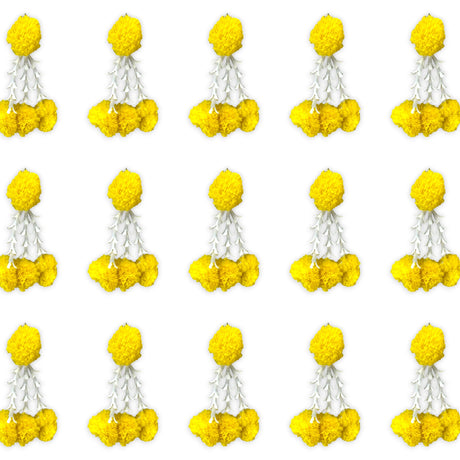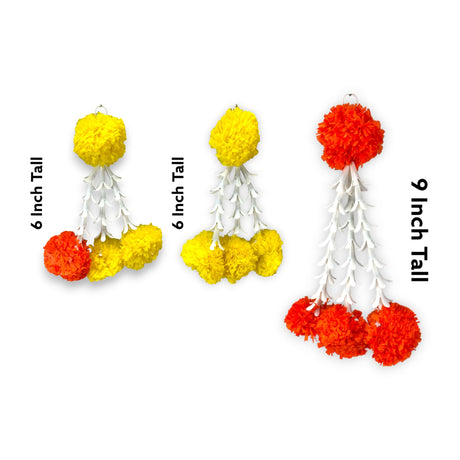A brief explanation of Guru Purnima and Its Significance
Guru Purnima is a Hindu festival celebrated to honor the teachers and gurus. It is celebrated on the full moon day of Ashadha (July/August) according to the traditional Hindu calendar. The word 'Guru' means ‘teacher’ in Sanskrit, which denotes those who provide enlightenment and knowledge. Guru Purnima is associated with the passing of knowledge and wisdom from one generation to another.
On Guru Purnima, people pay homage to their teachers by offering gifts and expressing gratitude for all that has been learned from them. It is also a time when students of different disciplines seek blessings from their teachers and commit themselves to the cause of learning.
Description of "puja" or prayer offerings to honor the Guru
Guru Purnima is celebrated by offering prayers to the Guru. People light a diya (traditional oil lamp) and chant mantras in honor of their Guru. Flowers, incense sticks, fruits and other items are offered as part of the puja ceremony. This ritual helps to express gratitude for all the knowledge that has been imparted to them over the years.
It is also customary to offer guru dakshina (teacher’s fee) as a token of respect and appreciation for the teacher's effort in imparting knowledge. This could be either material or non-material items such as money, books, flowers or food.
Historical Background
Guru Purnima is believed to have started during the Vedic period when the great sage Veda Vyasa was born. He is credited with writing Mahabharata, an epic poem full of wisdom and teachings on Dharma (moral way of life). To honor him, people began offering puja on the day of his birth. Over time, this custom evolved into a tradition of honoring the teacher, or Guru, on Guru Purnima.
Origin and mythology related to Guru Purnima
Guru Purnima is celebrated in honor of Lord Shiva, who is believed to be the first Guru (teacher) in Hinduism. According to the legend, on the day of Guru Purnima, Lord Shiva opened his eyes and imparted knowledge and wisdom to the spiritually awakened sages. This story has been passed down from generation to generation ever since.
Its significance in various religions
In Hinduism, Guru Purnima is a day to commemorate and honor one's teacher. This has come from the belief that all knowledge comes directly or indirectly from the divine source and hence it is important to pay homage to those who have imparted this valuable wisdom.
In Buddhism, Guru Purnima marks the day when Gautama Buddha gave his first sermon at Sarnath. This event is known as 'Dharma Chakra Pravartan' and marks the beginning of Buddhism.
In Jainism, Guru Purnima is significant as it marks the day when Lord Mahavir attained nirvana or enlightenment. It also commemorates the teachings of all the 24 Tirthankaras (teachers) of Jainism.
In Sikhism, Guru Purnima marks the day when Guru Nanak Dev established a new spiritual path. He is believed to have laid down the foundations of Sikhi or Sikhism and hence it is celebrated as a major religious festival in this faith.
The Significance of Guru Purnima
The role of 'Guru' in life
The 'guru' plays a very important role in guiding and shaping the life of an individual. He is believed to be a source of knowledge and wisdom that helps us to overcome obstacles in life, become aware of our true potential and lead a meaningful life. The guru instills values, encourages spiritual growth and provides moral support during moments of difficulty and despair. He is the one who helps us to develop an understanding of life and its purpose.
Why we celebrate Guru Purnima
Guru Purnima is a day to thank our teachers and mentors for all that they have done for us. It is a day to pay homage to the teachings of these great masters, who have selflessly imparted their knowledge and wisdom in order to guide us on the path of truth and enlightenment.
Traditions and Customs of Guru Purnima
On this day, devotees gather in temples and other places of worship to express their gratitude to the guru. Prayers and mantras are chanted while offering flowers, fruits, and sweets as a tribute to the teacher. People offer monetary donations in order to support spiritual organizations that teach Dharma or Righteousness.
How Guru Purnima is celebrated in different parts of India
Guru Purnima is celebrated in various parts of India with unique customs and traditions. In the Northern states of India, people observe fasts and offer sandalwood to the guru as a sign of respect. While in Kerala, they celebrate Gurudev Jayanti and take part in special rituals like Kalasabhisheka (bathing the deity with holy water).
Rituals performed on this day
The rituals performed on this day vary from region to region. In some places, devotees prepare special dishes like laddoos and distribute them among the people as a sign of respect for the guru. They also chant mantras in honor of their guru and perform arati or pooja ceremonies.
In North India, people observe Ekadashi Vrat (fasting for a day) and bathe in the Ganges or other holy rivers. They also light lamps in front of their guru's photographs and offer prayers to Lord Shiva. In certain communities, devotees spend the entire day singing bhajans and reading religious scriptures like the Upanishads.
Influence and Impact
Guru Purnima is a day to recognize and appreciate the contributions of our gurus. It gives us an opportunity to express gratitude for their guidance and teachings. Gurus have been a source of inspiration, knowledge, and wisdom since ancient times. They have influenced generations with their words, deeds, and teachings.
The impact of celebrating Guru Purnima in personal life
Guru Purnima is a day of reverence for our gurus and mentors. It helps us to have an attitude of appreciation and gratitude towards them. Celebrating this special day also brings peace and joy in our lives as it involves spending quality time with family, friends, and relatives.
The societal influence of Guru Purnima
The celebration of Guru Purnima also has a positive influence on society. It makes us more aware of the importance of mentors in our lives and encourages us to thank them for their contributions. By celebrating this special day, we are sending out a message that knowledge and wisdom should be spread across generations.
Guru Purnima helps promote the spirit of sharing and caring among communities. It teaches us to appreciate the guidance of our teachers and mentors and pass on their knowledge and teachings to future generations. This way, the tradition of Guru Purnima will continue to be celebrated by many generations in the years to come.
Conclusion
In conclusion, Guru Purnima is a special day that helps us reflect on our lives and improve ourselves. It promotes the spirit of sharing and caring among communities and encourages us to thank our gurus and mentors for their guidance. Celebrating Guru Purnima also has a positive influence on society by teaching us the importance of passing on knowledge and wisdom from generation
Reflecting on the value of knowledge and wisdom
On this special day, we need to take a moment and reflect on the value of knowledge and wisdom. Let us be thankful for our mentors who have helped us grow as individuals. They are the ones who have made it possible for us to gain more understanding of ourselves and the world around us.
Encouraging readers to honor their mentors
On Guru Purnima, it is important for us to take the time to honor our mentors and thank them for their guidance. They are the ones who have contributed so much to shaping our lives and helping us achieve our goals. Let's take a moment and express gratitude for having such amazing people in our lives.




































































